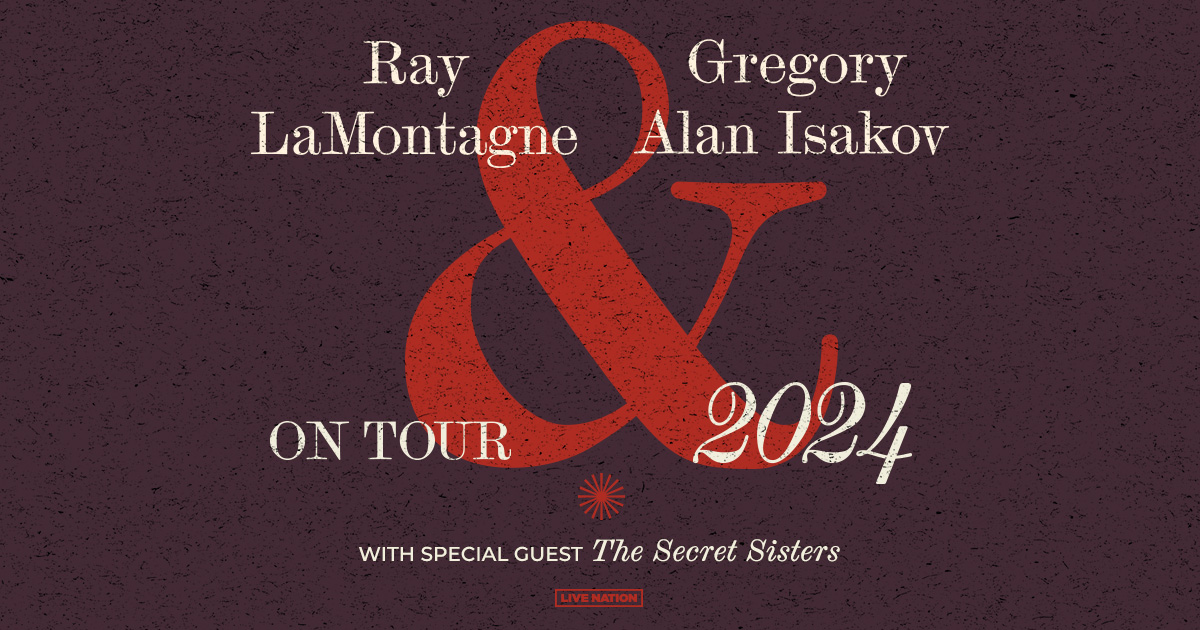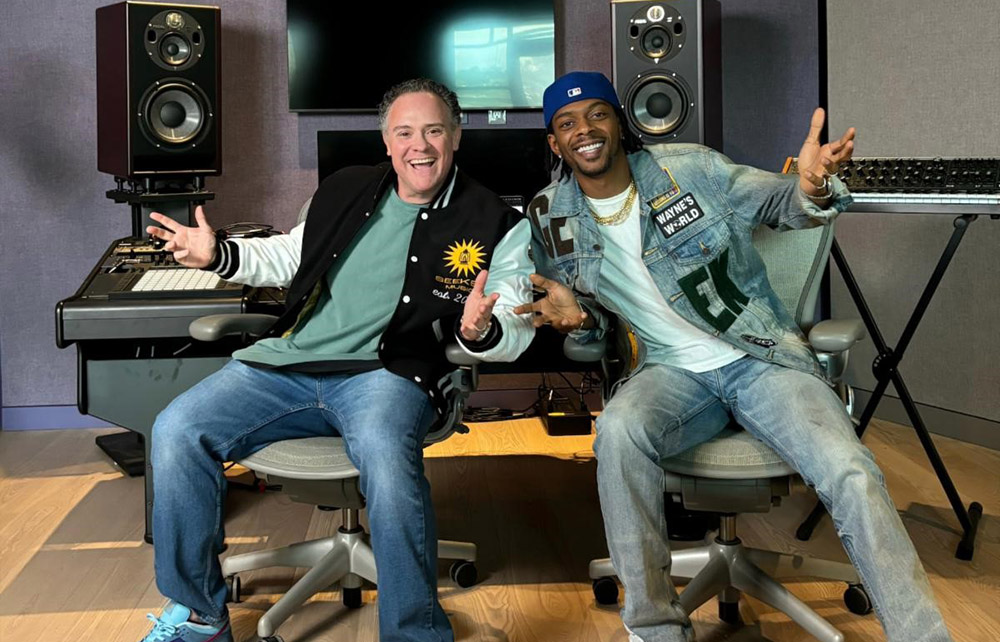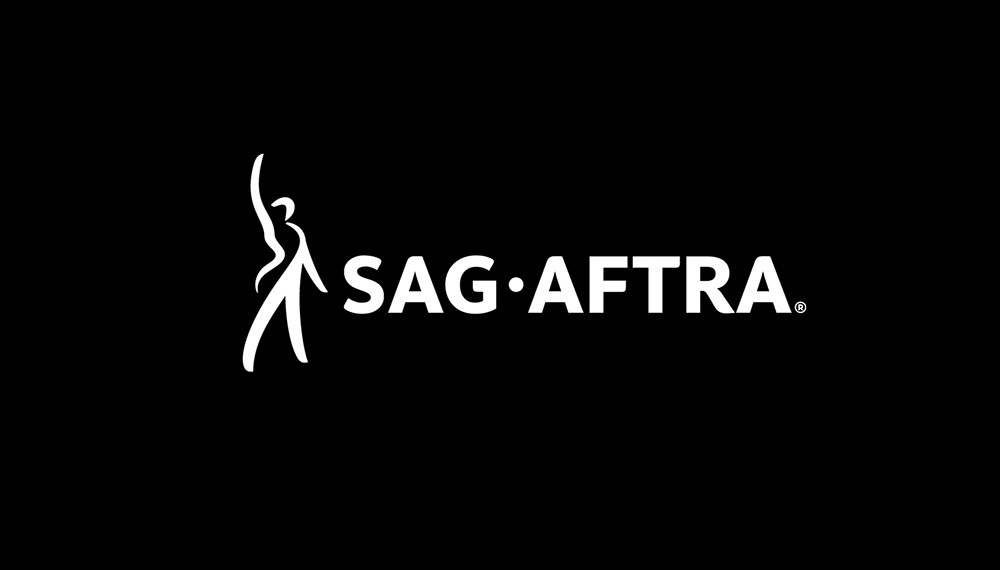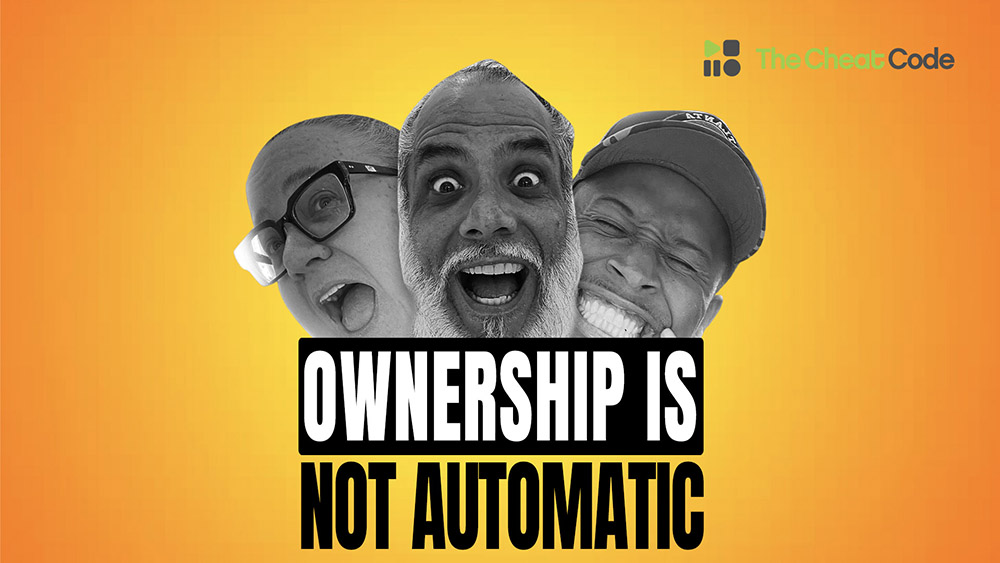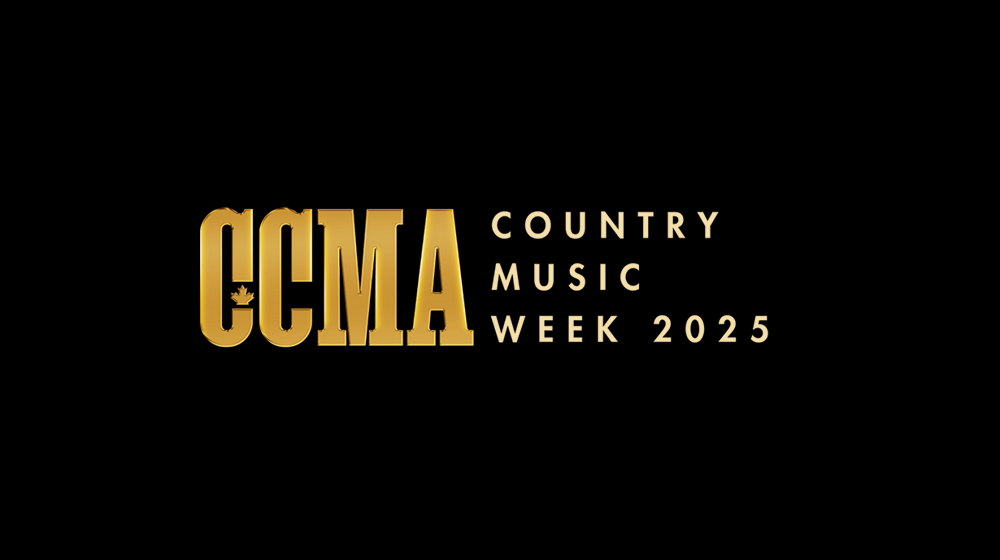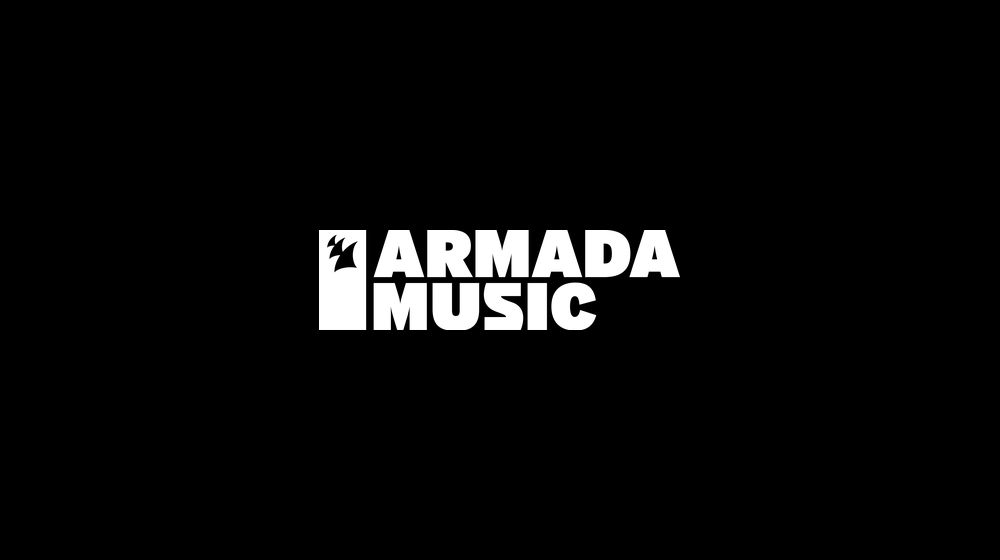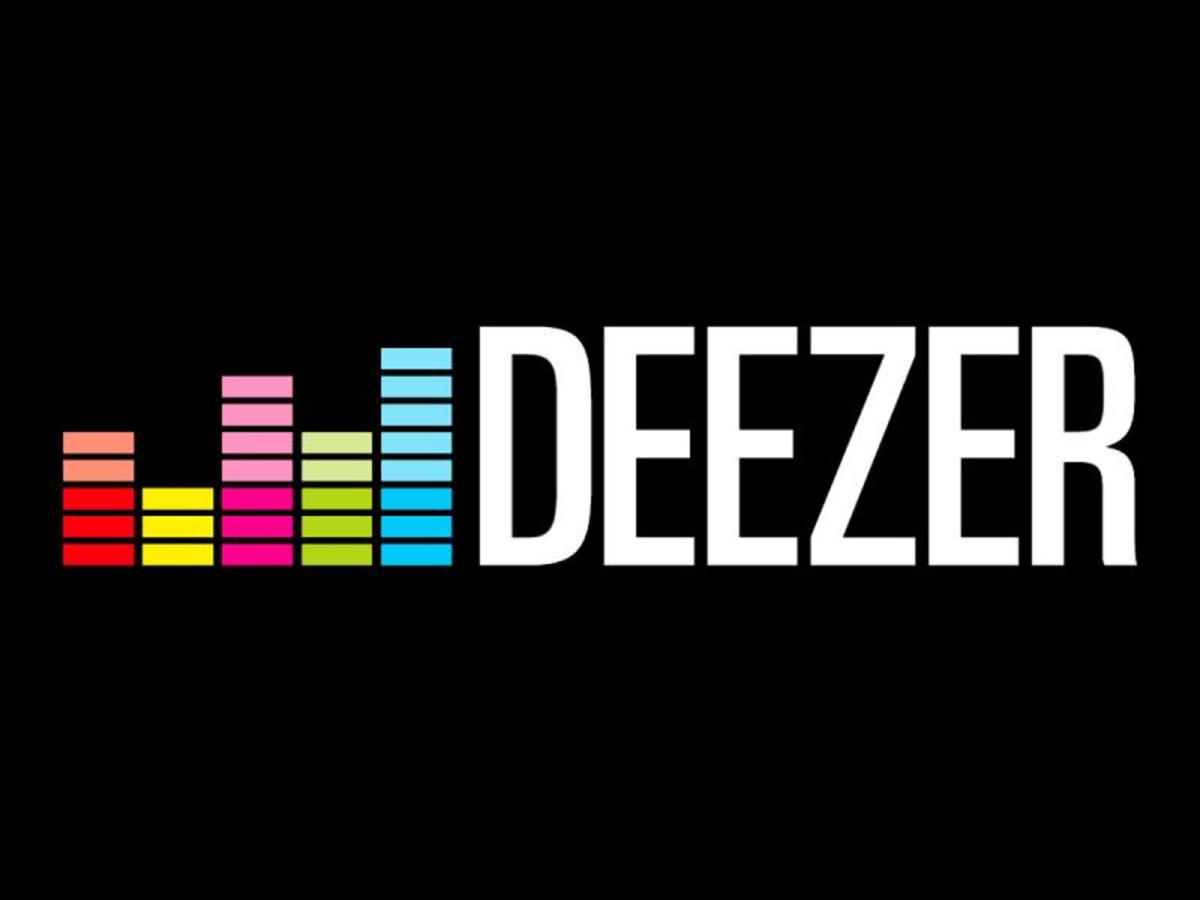
Yesterday I was at Sony. There was no hustle and bustle.
Oh, the west coast headquarters always had a laid back feel. But now there's the vibe of a ghost town. I heard no music playing, I saw nobody hanging out, those that were there were in their offices, working hard, thrilled to have a job.
Reception is now in the basement. The desks that used to be manned in the buildings… There's no one there. And now there are two labels involved, not just one. Yes, Sony and BMG.
Now I can understand cutting staff in a shrinking industry. But is music truly shrinking? Are people listening less?
Ironically, just the opposite is true, people are listening more. CD sales may be dropping, but tens of millions of people have iPods, which can hold a multiple of people's old collections. And even those without MP3 players have music on their hard drives.
P2P trading is staggering, far outstripping legal acquisition. It appears we're in a golden era of music. It's just that the major labels haven't figured out how to make it work for them. Look no further than the consolidation of Capitol and Virgin into one company today.
 No one is more dedicated and tenacious than Jason Flom. Always working his relationships, he's always got his eye on the goal, and is trying to figure out a way to slide the puck across the ice, through the defenders, into the net. But Jason is only one man. He can only work so many records.
No one is more dedicated and tenacious than Jason Flom. Always working his relationships, he's always got his eye on the goal, and is trying to figure out a way to slide the puck across the ice, through the defenders, into the net. But Jason is only one man. He can only work so many records.
The reason we had the label explosion two decades back was because of radio. It was believed that you needed multiple imprints to work stations, that outlets would not be receptive to one promo man working so many records. And with radio burgeoning, there was an opportunity. For exposure, to make money.
But the radio equation has diminished. Greatly. Jason Flom can work radio and TV and even Starbucks as well as anybody. But are those the only games in town?
Not by a long shot. It's just that the other games are so new, such niches, so baffling, that the majors just can't figure out how to play profitably. And rather than build toward an inevitable future, they're retrenching. This will be their downfall.
If you're not in control of new music production/sale, you lose your essence. Society demands new music, media outlets demand new music. Those with heat end up with the relationships. But by ceding so much of the media landscape, by retreating so far, by tightening the purse strings to such an extent, the majors are leaving wide swaths of the business, both present and future, to others.
You can't make any real money selling online. Because the primary mode of acquisition isn't monetized.
 So the newbies don't focus on recorded music sales. They give the music away for free. Sell CDs as souvenirs at shows. It's about the show. It's about act culture. Getting people to believe in performers and charging them any way possible. The majors can't compete. The old wave managers and lawyers won't cough up those rights. But, if you're a nobody, if you're all in it together, your buddy is the manager and label and… Your motivation is different. It's about the music, it's about having fun. The major labels are star machines. A star is someone on MTV and then in the tabloids you make fun of. Who wants to be a star?
So the newbies don't focus on recorded music sales. They give the music away for free. Sell CDs as souvenirs at shows. It's about the show. It's about act culture. Getting people to believe in performers and charging them any way possible. The majors can't compete. The old wave managers and lawyers won't cough up those rights. But, if you're a nobody, if you're all in it together, your buddy is the manager and label and… Your motivation is different. It's about the music, it's about having fun. The major labels are star machines. A star is someone on MTV and then in the tabloids you make fun of. Who wants to be a star?
Obviously somebody. But, that's an ever-shrinking share of the business. An impossible game where the acts that do make it lose all credibility and have brief careers. In other words, with music instrument sales through the roof (LA Times), people are making a ton of music that the majors aren't interested in distributing, for they don't know how to sell it, but what they leave on the table that's good, albeit a very low percentage of what's created, is finding its own path to the marketplace. Where the selling is done by word of mouth, that costs nothing, and is based on quality and relationships. Elements the majors have burned from their business plan. Hell, the audience doesn't trust the labels. Can you imagine not trusting Warner Brothers and Atlantic in the seventies? You'd die to work there. There aren't even any jobs for young 'uns at these labels anymore, and these kids, who still love music, are finding their own way.
EMI is proving by this consolidation that they need to be allowed to merge with Warner. They're illustrating what sad shape they're in. It appears to be a death spiral. An operation that's outlived its time.
But it could be reinvented. By changing the economics. Hiring more people, at very low salaries, to sell more records. Kind of like Compaq competing with Dell. Instead of selling overly-tested boxes at premium prices, make commodities and sell them to everybody.
Historically, everybody hasn't owned music, certainly not much. In the present, certainly the future, everybody will own a ton of music. And it won't all be hits. The key is to realize this, and change your business model to fit the paradigm.
Majors have infrastructure. Distribution, accounting… Systems that cannot be replicated for a cheap price by indies. They should sell these services. Let the indies play in their domain. For a cheap price. Because it's all about pennies now. And try to rip me off, and I'll find my own way. It might be difficult, but the tools are available, I can do it.
EMI is praying that it can pull a rabbit from the hat.
 But everyone knows that the Norah Jones album is gonna stiff. She was too big too fast with too little a personality and identity to sustain her success. The tour numbers tell us everything. There aren't enough believers. Whereas bands with comparatively crappy CD sales can sell tickets every night. And many work almost every night.
But everyone knows that the Norah Jones album is gonna stiff. She was too big too fast with too little a personality and identity to sustain her success. The tour numbers tell us everything. There aren't enough believers. Whereas bands with comparatively crappy CD sales can sell tickets every night. And many work almost every night.
It's the music business. Until you realize this, you're screwed. You've got to establish a relationship with the fan. You've got to sell credible music. You've got to be in it for the long haul. These are basic tenets. Ignore them and you go out of business, or become marginalized.
EMI has great catalog assets. Those will be worth a fortune in the future. But probably only after somebody else develops a reasonable distribution system online for those assets. That's the conundrum, that's the movie, how those with all the power have squandered it, year after year, leaving the landscape to innovators. Hell, nobody at the labels was developing Napster. It's not like no one at a major had Web access. But the concept of forward thinking, that's anathema.
This is a consolidation that was worked out on paper, to make the numbers work. If you think music is about numbers…





















